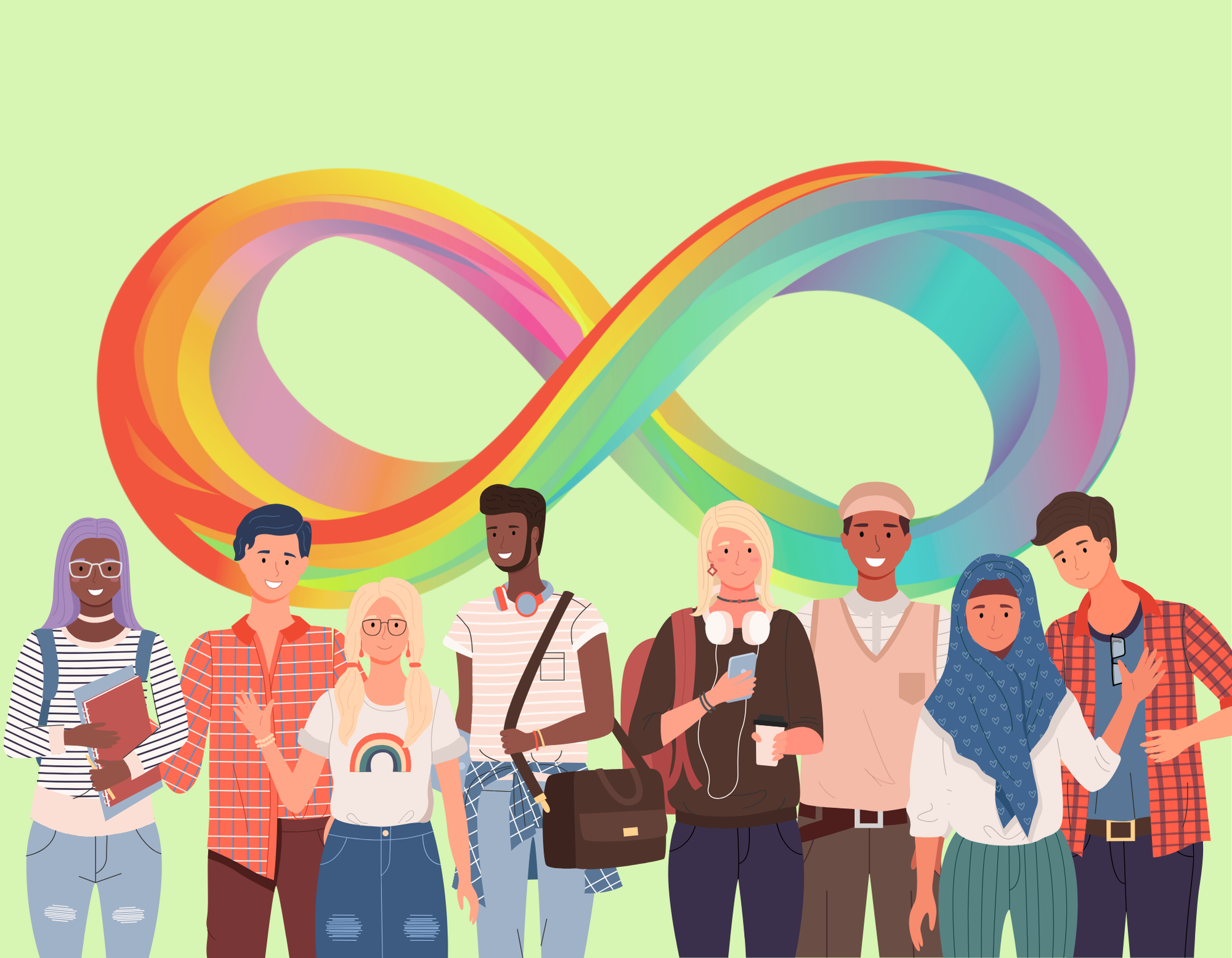Imagine that you’re working on a 1000-piece jigsaw puzzle. You start with a pile of individual pieces. The box shows you the completed picture, but it’s going to take some work to fit the whole thing together. Maybe your first instinct is to notice the colors and group the pieces into piles of a similar shade. Or perhaps you ignore the finished picture entirely, and just focus on the shape of each individual tab.
If you work best by seeing the bigger picture before getting into the details, you prefer a top-down approach to processing. On the other hand, some people default to bottom-up processing- they need to understand how all the tiny pieces fit together before mastering the overall concept.
Everyone’s brain works a little differently. This is fundamental to the concept of neurodiversity, a term coined by autistic self-advocate and sociologist Judy Singer. Singer saw neurodiversity as “a biological truism”- since no two human nervous systems can ever be exactly alike, humanity as a whole is neurodiverse. She also saw this concept as a tool for intersectional analysis and advocacy. Neurodiversity offers a way to talk about neurological differences, especially for groups who have been marginalized or given medical labels (such as the autistic community), without shame or stigma. The idea is to acknowledge and value our cognitive differences instead of treating them as a deficit.
If you’ve heard about neurodiversity, you’ve probably also seen the term neurodivergent. Neurodiversity refers to groups of people. Neurodivergent refers to individuals whose mind or functioning falls outside of societal norms.
Neurodivergence is considered an umbrella term, since there are many different labels and conditions that fall under this category (see the above examples in the diagram, created by Sonny Jane Wise @livedexperienceeducator). One neurodivergent person may be diagnosed with ADHD and autism. Another person may have epilepsy or OCD. (And, not everyone has a specific, formal diagnosis.) We are grouped together by our common experiences of living outside what society expects a standard mind to be like.
While it’s difficult to pinpoint how many neurodivergent students are currently enrolled in higher education, we do know that the number of students with a disability has been increasing over time. More than 20% of undergraduates in the 2019-2020 academic year reported having a disability (National Center for Education Statistics). This statistic includes all kinds of disabilities, including those that fall under the neurodivergent umbrella. As awareness of neurodiversity grows, so do the resources available for advocacy and support.
Whether you’re a first-year undergraduate or a doctoral candidate writing your dissertation, the Weingarten Center is here to ensure you have equal access to academics and campus life. Weingarten also offers academic support resources for all kinds of learners. If you identify as neurodivergent, you may be interested in connecting with the Disability Services team to talk about accommodations. A Disability Specialist can also provide guidance and resources if you’re seeking a formal diagnosis. If you’re looking for support with building academic skills, you can schedule a Learning Consultation. A Learning Specialist will give professional recommendations about things like time management, tackling academic reading, or even STEM-specific study strategies. Weingarten Center staff will give you individualized support, so advice and guidance will be tailored to your learning and access needs.
An inclusive campus environment is about more than academics, too- it includes social spaces that are welcoming and accessible to neurodivergent students. Take some time to consider your needs for social support and community in addition to your academic development. Student groups like the Advocates for Neurodiversity and NeuroQueer provide a space to connect with peers who may have similar experiences.
If you have any questions about the Weingarten Center and how we can support your journey at Penn, don’t hesitate to reach out!
Written by Emmett Binkowski, Disability Services Specialist, Weingarten Center
Sources:
Singer, J. (n.d.). Neurodiversity: Definition and discussion. Reflections on Neurodiversity. Retrieved June 20, 2024, from https://neurodiversity2.blogspot.com/p/what.html
National Center for Education Statistics. (2023, TBA). Table 311.10. Number and percentage distribution of students enrolled in postsecondary institutions, by level, disability status, and selected student characteristics: Academic year 2019–20 [Data table]. In Digest of education statistics. U.S. Department of Education, Institute of Education Sciences. Retrieved December 5, 2023, from https://nces.ed.gov/programs/digest/d22/tables/dt22_311.10.asp.

